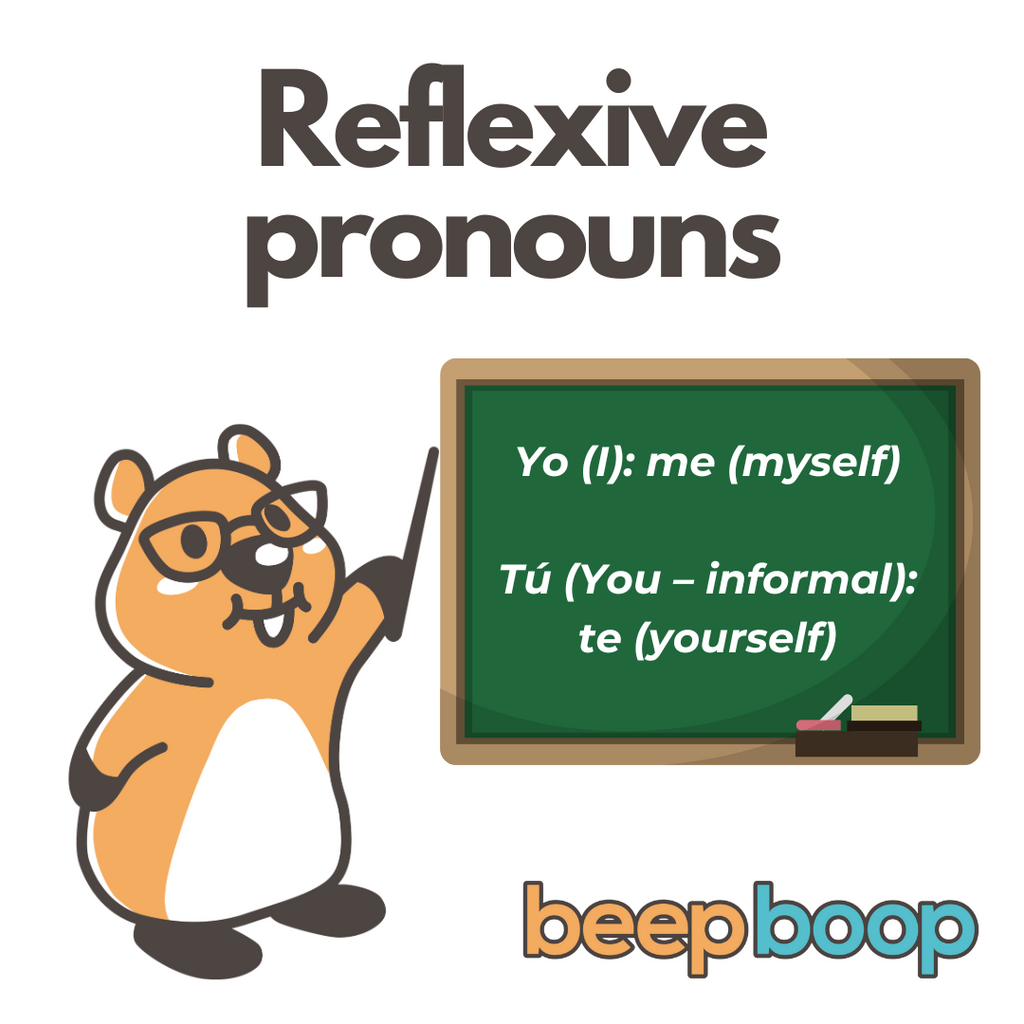Welcome to BeepBoop's blog, where today we're diving into the world of reflexive pronouns in Spanish! Whether you're a beginner or looking to polish your skills, understanding reflexive pronouns is key to mastering the Spanish language. Read the below and then book a free Drill to practice live with our native Spanish instructors. Also, check out TV Club: Episode 13 of Destinos where Reflexive Pronouns are covered in depth. Let's delve deeper into this topic.
What Are Reflexive Pronouns?
In Spanish, reflexive pronouns are used when the subject and the object of a sentence are the same. They indicate that the subject of the sentence is performing an action on themselves.
The Reflexive Pronouns in Spanish
Here are the reflexive pronouns in Spanish:
- Yo (I): me (myself)
- Tú (You – informal): te (yourself)
- Él/Ella/Usted (He/She/You – formal): se (himself, herself, yourself)
- Nosotros (We): nos (ourselves)
- Vosotros (You all – informal in Spain): os (yourselves)
- Ellos/Ellas/Ustedes (They/You all – formal): se (themselves, yourselves)
When to Use Reflexive Pronouns
- Daily routines: For actions we perform on ourselves, like "me lavo" (I wash myself).
- Reflexive verbs: Some verbs are inherently reflexive, like "arrepentirse" (to regret).
- Emphasizing the subject’s action on themselves: To highlight that the action is done by the subject to themselves.
Examples in Sentences
- "Ella se mira en el espejo." (She looks at herself in the mirror.)
- "Nosotros nos cepillamos los dientes." (We brush our teeth.)
Tips for Practicing Reflexive Pronouns
- Listen and Repeat: Listen to native speakers and mimic their use of reflexive pronouns.
- Daily Journal: Try writing about your daily routine using reflexive pronouns.
- Interactive Exercises: Use BeepBoop’s interactive exercises to practice in real-life scenarios.
Common Mistakes to Avoid
- Confusing reflexive pronouns with direct or indirect object pronouns.
- Forgetting to change the reflexive pronoun according to the subject.
Conclusion
Reflexive pronouns are a fundamental part of Spanish grammar. With practice and attention to detail, you'll be using them like a native in no time!
